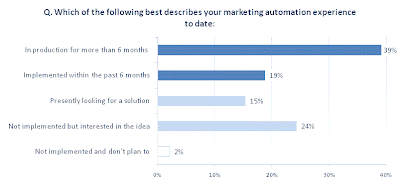How more can be less
Education, education, education.
And sure enough, during Labour's time in office, they whacked up state education spending by an astonishing
73% in real inflation adjusted terms. By 2009-10 spending had increased to £88.3bn - around £8 grand pa for every pupil and student between 5 and 21.
But what precisely have we taxpayers had in return? Where's the pay-off?
You can forget all those fiddled tractor production stats - as everybody now understands, they're not worth the dumbed down exam papers they're written on.
Much more important is yesterday's report from the OECD - the 2009 results from their
Programme for International Student Assessment (PISA). That is based on a consistent and regular set of tests sat by 15 year olds across over 60 developed countries. And what it shows is us sinking further down the international league tables with each year that passes.
The Mail has a useful summary:
What should we make of that?
Some argue that it's largely a question of race - we're simply not as bright as the superbrains out East, and we just need to accept that as they build up their education systems we will sink ever further behind.
But even if true, that doesn't explain why we're so much worse than European countries like Finland and, gulp, Estonia.
Immigrants then. Some argue that Finland and others do well because they have far fewer immigrants dragging down the overall scores.
But while
with 10.6% immigrant pupils we are much higher than say Finland, other countries with high immigrant percentages also do much better than us. For example, Canada and Australia both have higher percentages, yet both beat us in the league tables.
No, the real problem seems to lie with our school system rather than the pupil mix
per se. Despite a huge additional injection of cash, we still aren't getting the results we need - in fact, we seem to be going backwards.
Which raises the obvious question as to whether spending all that extra money was worth it? And whether in these straitened times we ought to cut some of it back?
Because what
the OECD report also highlights is that although we are now among the world's top education spenders, others achieve similar or better results while spending
much less:
"Only seven OECD countries spend more per student than the United Kingdom...
[but]... moderate spending per student cannot automatically be equated with poor performance by education systems. For example, Estonia and Poland, which spend around US$ 40 000 per student, perform at the same level as Norway and the United States, which spend over US$ 100 000 per student. Similarly, New Zealand, one of the highest performing countries in reading, spends well below the average per student. While the United Kingdom spends almost US$ 85 000, Germany or Hungary achieve a similar average performance and spend around US$ 63 000 and US$ 44 000 respectively."
So if we cut spending back to say German levels, then according to Tyler's fag packet we could save an average $22k over each pupil's 10 years of school education up to age 15. Which works out at an annual saving to taxpayers of around £10bn pa. Not bad.
And it isn't just schools. When last sighted (
2006) we were spending 5.9% of our GDP on education as a whole, whereas Germany was spending only 4.8%. Which is equivalent to about £15bn pa - money British taxpayers could save if we cut back to German spending levels.
And remember this - in this post-bubble world, Germany is beating the pants off us.
Jeremy Warner has the picture story here including this chart that shows how much lower is their youth unemployment:
It seems German companies actually
want to employ the products of German schools.
So what does Germany do right and we do wrong?
Hmm... now, let me see... what could it be... ah yes,
selection. That thing nobody is allowed to mention here any more.
It is surely time to ask ourselves a serious question - can we any longer afford an education system that is run by the social engineering commissariat? Prizes for all and A*s all round was a lovely way of spending the last days of summer, but winter's here now.
In this new and tougher world nobody owes us a living. We need an education system that prioritises academic excellence for those with the ability to generate our future wealth, and a strong grasp of basic skills for those at the bottom - it is shocking that the OECD finds that after a decade or more of schooling, 20% of our 15 year olds are functionally illiterate.
Germany shows it can be done. We can get over the fact that our school pupils are not all Chinese. We can cope with the fact that over 10% of our pupils are immigrants. And we can even save £10 - £15bn pa in the process.
We just need to grasp one nettle.
And
this time, we should do it properly and
fairly (
see this blog).
PS And while we're on the subject, Tyler keeps swallowing his false teeth listening to those future politicos who
"speak for" the revolting students. You see, English literature degrees are
not essential to the future of the nation. There
is no God-given right for 18 year olds to spend three years getting pissed at taxpayer expense. The Browne recommendations on university funding and student loans are fair to
everyone - both taxpayers and students (
see this blog). And the thought of these future Jack Straws ruling over us for the next 40 years makes Tyler gag.
PPS Talking of English Lit degrees, Mr and Mrs T saw
Rory Kinnear's Hamlet last night. Stunning - possibly the best live Hamlet Tyler has ever seen. Fresh interpretation, strong performances all round. Mrs T thought they'd slightly overdone the modern instances, but Tyler was... well.. stunned. Highly recommended.






























